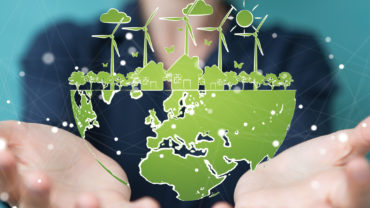Gender equality is a goal in its own right, but it is also vital in relation to mitigation and adaptation to climate change. UNEP DTU Partnership seeks to advance women’s full, equal and meaningful participation and to promote the creation of gender-responsive climate policies.
Kicking off Gender Day at COP24 tomorrow, UNDEP DTU Partnership is part of organising a high level event focusing on gender and the implementation of climate technology through the Technology Needs Assessments.
“Women face greater burdens from poverty-related climate change impacts. This is something that we would like to see being addressed in the process of prioritizing and assessing climate technologies” says Sara Trærup, co-organiser of the event and project manager for the global Technology Needs Assessment project at UNEP DTU Partnership.
Strengthening gender in climate tech
The high-level event ‘Strengthening gender considerations in the Technology Needs Assessments for implementation of the Paris Agreement’ will focus on sharing experiences and key recommendations for strengthening gender considerations in Technology Needs Assessments and climate action.
It will take place on Wednesday the 11th of December from 8:00-9:30 at the Hotel Monopol in Katowice.
During the event, participants will highlight opportunities for collaboration between governments, implementing entities, operating entities of the Financial Mechanisms and non-state actors.
Gender focus at COP
Gender equality and gender mainstreaming are increasingly recognized as imperative for the effective implementation of the Paris Agreement, linking it with SDG 5 on gender equality.
This recognition acknowledges that countries in their climate actions should be guided by respect for human rights, gender equality and the empowerment of women.
Promoting gender equality and the empowerment of women is therefore a key component of the COP 24 climate conference in Poland this year, which also marks the half way point of the Gender Action Plan established by the UNFCCC at COP 23 last year.
The Gender Action Plan includes activities in five priority areas:
- Capacity-building, knowledge sharing and communication
- Gender balance, participation and women’s leadership
- Coherence (on gender and climate change across UNFCCC and UN system)
- Gender-responsive implementation and means of implementation
- Monitoring and reporting
Under the Gender Action Plan UNEP DTU Partnership, together with the Climate Technology Centre and Network, were given a COP mandate to work with gender and technology.
This event responds to the mandate in the Action Plan to invite interested stakeholders to share information on the incorporation of gender into Technology Needs Assessments.
“We have a COP mandate for this work, but more importantly we see an increasing awareness of gender considerations in our partner countries, when we start up the Technology Needs Assessment process, and this increasing demand from the countries naturally leads us to increase our focus in this area,” Sara Trærup says.
New gender guidebook
During the event, UNEP DTU Partnership will launch a new guidebook with recommendations for integrating gender in technology needs assessments. It highlights the importance of analysing gender considerations during identification, prioritization and assessment of technologies for climate mitigation and adaptation.
Based on this guidebook countries will receive guidance in and capacity building on how to ensure that new technology benefits society at large with an emphasis on gender equality, making sure that the most vulnerable groups will benefit and that technology impact is maximised.
A gender-responsive climate policy continues to require further strengthening in all activities concerning climate change adaptation, mitigation and related ways of implementing climate policies, as well as associated decision-making.
The Guidance for a gender-responsive Technology Needs Assessment familiarizes the reader with gender concepts and demonstrates the relevance of taking a gender inclusive approach in Technology Needs Assessments, as well as to the relationship between gender and climate in the Sustainable Development Goals.
The guidebook can be downloaded here.


